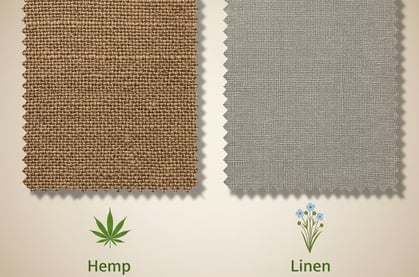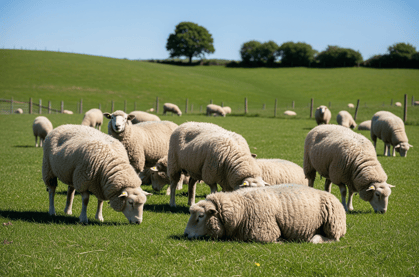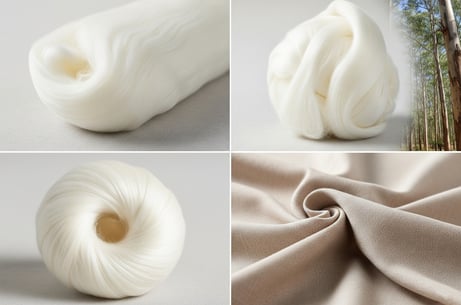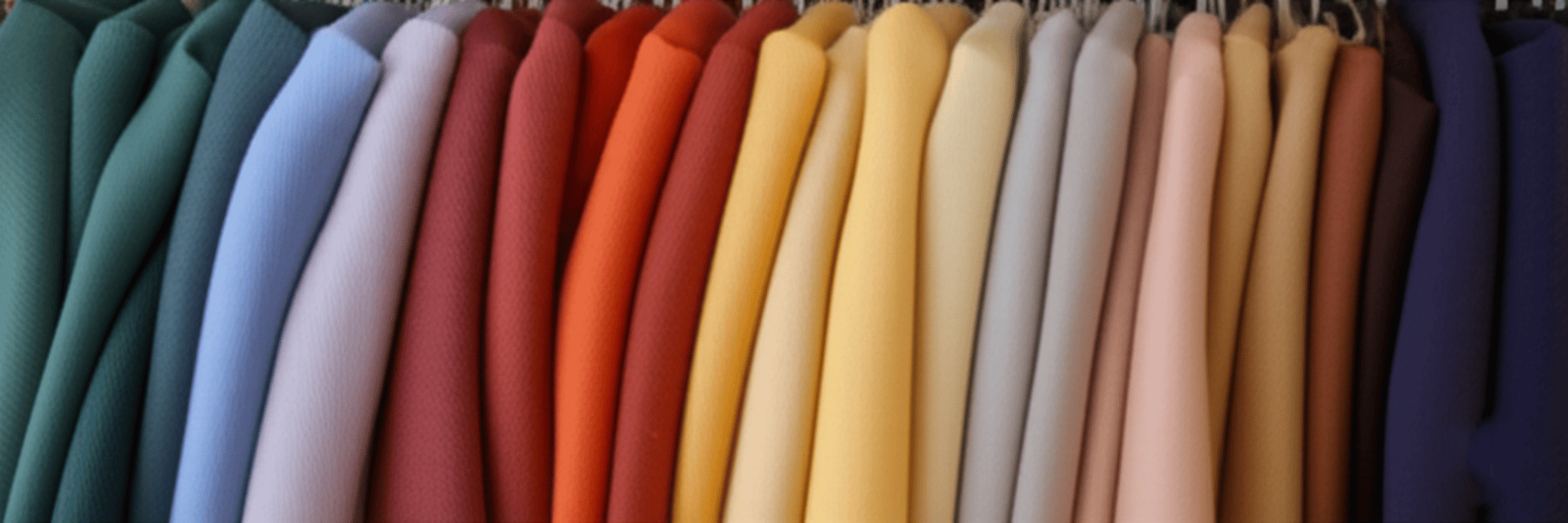
Embracing a Greener Lifestyle: The Power of Sustainable Fabrics in Modern Apparel
7/17/20254 min read
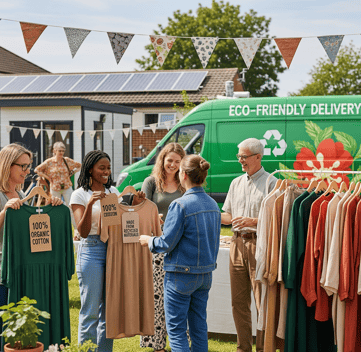

The choices we make about our clothing have a significant impact on the planet. As consumers become increasingly conscious of their environmental footprint, the demand for sustainable alternatives in the fashion industry is surging. In fact, a 2022 McKinsey report indicates that 50% of consumers globally now consider sustainability a top purchasing criterion. This vital shift reshapes how garments are conceived, produced, and consumed.
At OpaShape, we recognize this imperative and are deeply committed to utilizing a diverse range of life-oriented sustainable fabrics that not only offer exceptional comfort and performance but also minimize our impact on the Earth. This commitment extends beyond a single material; it encompasses a holistic approach to sourcing, production, and ultimately, the garments you wear. By understanding the unique benefits and environmental advantages of these fabrics, we empower our customers to make informed decisions that align with their values and contribute to a more sustainable future.
Organic Cotton
Grown without synthetic pesticides, herbicides, or genetically modified seeds, organic cotton protects soil health, conserves water, and safeguards the well-being of farmers. Its natural softness and breathability make it ideal for everyday wear, baby clothing, and home textiles.
RPET Fabric (Recycled PET Fabric)
Transforming waste into wearability, RPET fabric is crafted from recycled plastic bottles. This process reduces landfill waste, conserves virgin petroleum resources, lowers carbon emissions, and helps clean up our planet. Reflecting its widespread adoption, recycled polyester now accounts for 14% of the global fiber market, with production continuing to grow annually (Textile Exchange, 2023). It's a durable and versatile choice for activewear, outerwear, and more.
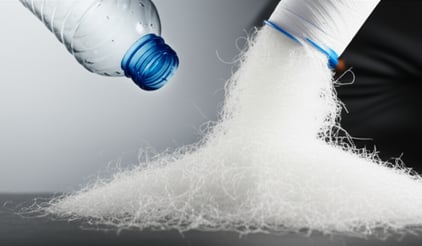

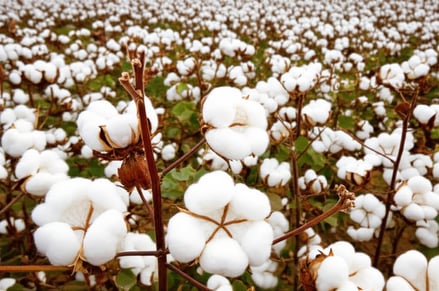

Color Cotton (Naturally Colored Cotton)
This innovative cotton variety grows in natural hues, eliminating the need for traditional dyeing processes. By skipping dyeing, we significantly reduce water consumption, energy use, and the discharge of chemical pollutants. It's a gentle and environmentally sound option for innerwear and delicate items.
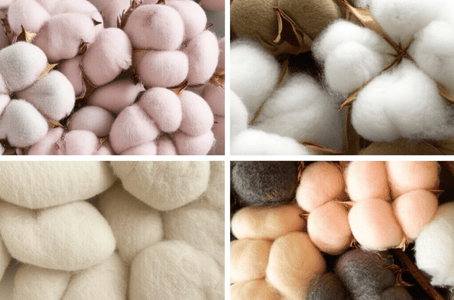

Bamboo Fiber
Known for its rapid growth and minimal need for water and pesticides, bamboo is a highly renewable resource. Bamboo fiber offers excellent breathability, moisture-wicking properties, and a soft touch, making it suitable for base layers, loungewear, and bedding.
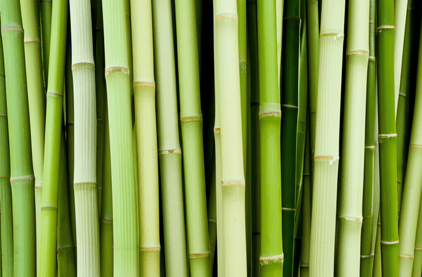

Soybean Protein Fiber
Derived from soybean meal, a byproduct of tofu production, this innovative fiber offers a silky hand feel and luxurious drape. As a plant-based renewable resource, its production has a lower environmental impact compared to many conventional fibers, making it a sustainable choice for delicate apparel.
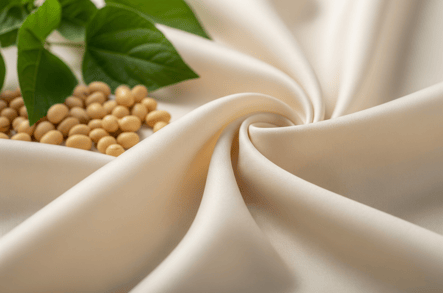

Hemp Fiber / Linen Fiber (Flax)
These bast fibers are derived from highly sustainable plants that require little water, pesticides, or fertilizers and can even improve soil health. Hemp and linen are known for their strength, durability, breathability, and natural texture, perfect for durable outerwear, casual wear, and home goods.
Modal
A regenerated cellulose fiber made from sustainably harvested beech wood pulp, Modal is produced in a process with lower environmental impact compared to traditional viscose. It boasts exceptional softness, excellent drape, and resistance to shrinking and fading, making it ideal for everyday essentials and activewear.
Organic Wool
Sourced from sheep raised on farms adhering to strict organic standards, organic wool ensures the humane treatment of animals and avoids the use of synthetic pesticides and hormones. It offers natural warmth, breathability, and durability for cozy outerwear and knitwear.
Tencel Lyocell
Produced from sustainably sourced wood pulp (often eucalyptus) using a closed-loop production process that recycles almost all solvents, Tencel Lyocell is a leader in eco-friendly fiber innovation. It is exceptionally soft, breathable, strong, and gentle on the skin, making it a versatile choice for a wide range of apparel.
Our Commitment to Verification: The Importance of Standards
Our dedication to sustainability is reinforced by our commitment to sourcing materials with recognized certifications, providing transparency and accountability to our customers. Key standards s throughout the supply chain.
Organic Content Standard (OCS): Tracks and verifies the presence and amount of organic material in a final product.
OEKO-TEX® Standard 100: Certifies that products are free from harmful levels of more than 100 substances known to be dangerous to human health.
Forest Stewardship Council (FSC): Ensures that wood-based fibers like Modal and Tencel come from responsibly managed forests.
Wearing Our Values: Choosing Sustainable Apparel
By prioritizing these life-oriented sustainable fabrics, OpaShape is committed to creating apparel that aligns with a more environmentally conscious future. We believe that fashion can be both beautiful and responsible, and we invite you to join us on this journey. By choosing our garments made with these innovative materials, you are not only investing in quality and comfort but also supporting a healthier planet.
Explore our collections and discover the difference of wearing your values.
A Spectrum of Sustainable Choices: Exploring Eco-Conscious Fabrics
The realm of sustainable textiles is rich and varied, offering a wide array of options with distinct characteristics and environmental benefits. Here are some of the key life-oriented sustainable fabrics we are proud to incorporate:


